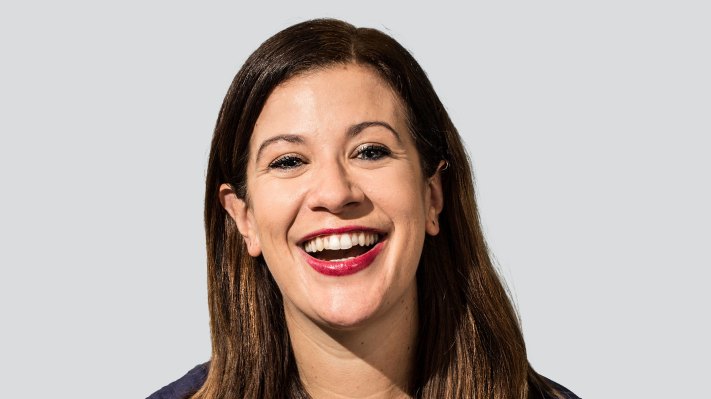If you’re currently building a startup, you know what product you want to build. But do you know if people are actually going to notice you? That’s the question I asked of Red Antler co-founder Emily Heyward during our virtual TechCrunch Early Stage event.
In case you’re not familiar with Red Antler, Heyward’s branding company has worked with some of the most iconic startups of the past decade, such as Casper, Allbirds, Brandless and Prose. She knows her topic so well that she just wrote a book on branding called “Obsessed.”
Let me break down the key takeaways of her presentation and responses to questions from our virtual audience — we’ve embedded a video below with our entire conversation.
Branding matters — anybody can launch a startup
It has never been easier to launch a startup. If it’s a software company, your infrastructure will be managed by a cloud hosting company. If you’re selling consumer goods, you can find manufacturing partners more easily than ever before.
“There are fewer traditional gatekeepers standing in your way. You don’t need to be able to afford a national TV campaign to get people to notice you and to hear about you. It’s a lot easier to get it out there and start selling directly to people,” Heyward said.
The result is that there are many companies competing in the same space, launching around the same time. Casper isn’t the only online mattress company anymore for instance. Brand obsession can set you apart from the rest of the crowd.
Branding is what a business stands for
There are a lot of misconceptions around branding. It’s not just a name and a logo. You need to figure out what your business stands for and as quickly as possible.
“When you’re thinking about what your brand should stand for, you actually should ground yourself in a real problem,” Heyward said. And don’t confuse problems with solutions, don’t start your answer with “I’m making it easier to … .”
Airbnb first positioned themselves as a service to find a cheap place to stay. But Airbnb eventually found the problem they were actually solving. People want to belong and they want to feel like locals.
Feeling over function
“When we’re writing a strategy for a brand, the most important section is not what the business does. It’s what we want people to feel when they interact with the brand,” Heyward said.
That’s why you should create a connection with your audience. When you’re launching your product, your audience already has many expectations. It’s up to you to change those expectations to foster a connection. You could introduce emotions to a category that is dry and functional.
Stay focused
Direct-to-consumer brands are thriving because most of them are just selling one item. It becomes much easier to tell a more focused story.
It’s also true with software companies. Instagram was focused on photos while Facebook was trying to do it all. Venmo was focused on peer-to-peer payments even though you could already pay back your friends on PayPal for instance.
Remember that most people don’t care about new things, other than early adopters. “Most people are stuck in their ways, so you really have to think about the problem you’re solving for people,” Heyward said.
The name of your brand doesn’t matter
“Founders put too much stock in a name. When you’re starting, the name feels like the whole thing because that’s all you have. But truthfully, if you think about the brands that we’re familiar with and that we love, we’re never thinking about the name, we’re thinking about the brand,” Heyward said.
For instance, Twitter sounds silly but now Twitter is just … Twitter. If you’re making up a brand name, just make sure it’s easy to remember and to spell so people can find you.
Don’t look at data too much
“I don’t think data can tell you the answer of what your brand should stand for,” Heyward said. If you look too much at data, you’re not going to have a clear point of view. Your brand will be safe but also … boring.
It doesn’t mean that you should take your brand lightly. The most important thing I learned from Emily Heyward is that building a brand is a methodical process. Think about the problem you’re solving, determine the values that matter to you and come up with the best way to convey that message.
Here’s the full session from TC Early Stage:
